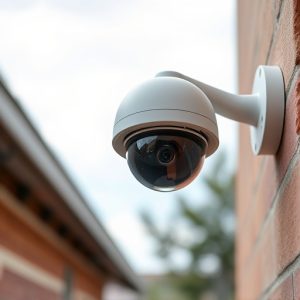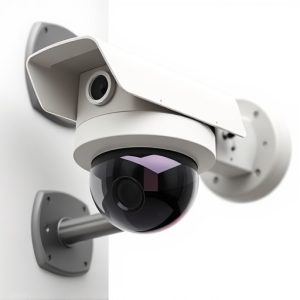Dummy Cameras: Wireless vs Wired Battery Life Comparison
Understanding dummy security camera power needs is vital for both homeowners and businesses, focusin…….
Understanding dummy security camera power needs is vital for both homeowners and businesses, focusing on Dummy Cameras Battery Life Comparison. Key factors include battery type (lithium-ion vs. alkaline), placement (wired vs. wireless), and usage conditions. Wired cameras offer longer lifespans (1-3 years) due to direct power, while wireless models, though more flexible, have shorter runs (6-12 months). Rechargeable lithium-ion batteries outperform alkalines. Resolution, features, temperature, and motion detection events also significantly affect battery life.
“Uncover the secrets to extending your dummy security camera’s battery life with our comprehensive guide. Understanding the power options available is crucial for efficient surveillance. We delve into the heart of these devices, exploring their power requirements and how they differ from wired counterparts.
This article offers an insightful comparison between wireless and wired dummy camera batteries, breaking down factors that impact durability. From initial setup to ongoing maintenance, we equip you with knowledge to make informed choices.”
- Understanding Dummy Security Camera Power Requirements
- Exploring Common Power Sources for Dummy Cameras
- Battery Life Comparison: Wireless vs Wired Solutions
- Factors Influencing Dummy Camera Battery Durability
Understanding Dummy Security Camera Power Requirements
Understanding Dummy Security Camera Power Requirements
When it comes to dummy security cameras, power options can vary greatly depending on the model and intended use. One of the key considerations is battery life, which plays a significant role in their overall performance. A crucial factor for homeowners or business owners alike is ensuring reliable and consistent surveillance without frequent battery replacements. Therefore, a detailed look at different battery types and their respective lifespans is essential, especially when comparing various dummy cameras.
In the realm of dummy cameras, there are typically two primary power sources: batteries and AC adapters. Battery-powered models offer portability and flexibility, ideal for temporary setups or locations without ready access to electricity. This leads to an interesting comparison between different battery types, such as lithium-ion versus alkaline, in terms of energy density and runtime. On the other hand, AC-powered cameras provide a steady power supply, making them suitable for fixed installations where convenience trumps mobility.
Exploring Common Power Sources for Dummy Cameras
Dummy security cameras, designed to look like real surveillance equipment, offer a range of power options that impact their performance and convenience. Understanding the common power sources available is essential for homeowners and business owners alike who want to ensure their dummy cameras provide adequate security while maintaining battery life.
One primary option is wired connection, which offers a stable power supply without the need for frequent battery replacements. This method involves running a cable from the camera to a power outlet, ensuring continuous operation. For those seeking wireless solutions, dummy cameras often utilize rechargeable batteries that can last for several weeks to months between charges, depending on model and usage. A Battery Life Comparison reveals varying capabilities, with some models boasting extended battery life, ideal for remote or hard-to-reach locations. Additionally, solar-powered options are emerging, harnessing renewable energy to power the cameras, making them environmentally friendly choices.
Battery Life Comparison: Wireless vs Wired Solutions
When it comes to dummy security cameras, battery life is a key consideration, especially for wireless solutions. Let’s look at a direct comparison between wired and wireless systems. Wireless dummy cameras, while offering greater flexibility in placement, often have shorter battery lifespans due to constant connectivity and power transmission. On average, these batteries might last anywhere from 6 to 12 months before requiring replacement, depending on factors like usage frequency and brightness settings.
In contrast, wired dummy cameras are directly connected to a power source, eliminating the need for frequent battery replacements. This results in significantly longer battery life, typically ranging from 1 to 3 years, making them a more cost-effective and hassle-free option in the long run. This comparison underscores the importance of understanding power options before investing in security cameras.
Factors Influencing Dummy Camera Battery Durability
The battery life of dummy security cameras can vary significantly, influenced by several key factors. One of the primary considerations is the camera’s power source—whether it relies on rechargeable or non-rechargeable batteries. Rechargeable options, often lithium-ion batteries, offer longer durations between charges compared to traditional alkaline batteries. Additionally, the resolution and features of the camera play a crucial role; higher-resolution footage and advanced functionalities generally consume more power, leading to shorter battery life.
Environmental conditions also significantly impact battery longevity. Extreme temperatures, both hot and cold, can affect battery performance and reduce overall lifespan. Proper placement and usage conditions are essential for optimal battery health. Furthermore, the frequency of motion detection events and the camera’s sensitivity settings contribute to energy usage; more frequent triggers or higher sensitivity will deplete batteries faster during periods of inactivity.
In exploring the power options for dummy security cameras, we’ve discovered that understanding their specific requirements and comparing battery life are key factors in making an informed decision. Wireless solutions offer convenience but may have shorter battery durations, while wired setups provide more stability. Considering environmental factors and usage patterns can significantly impact dummy camera battery longevity. Ultimately, a balanced approach that aligns with your security needs and power preferences is the best way to ensure optimal performance and peace of mind.


